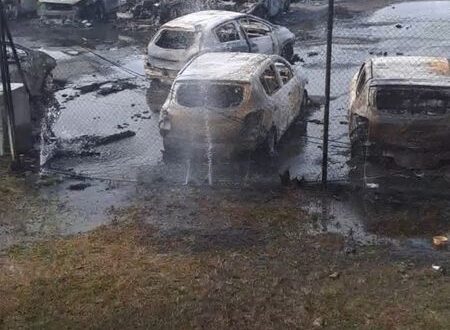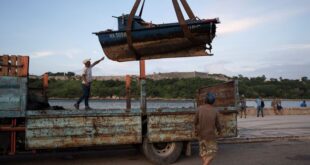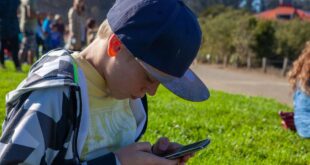WELLINGTON/PARIS (Reuters) -Authorities in the French-ruled Pacific island of New Caledonia sent more police onto the streets, shut the international airport and imposed a curfew in the capital after protests over the territory’s voting system turned violent.
New Caledonia’s capital Noumea was covered by a thick cloud of black smoke as the curfew started, local broadcaster NC La 1ere reported, adding that a local sport facility had been set ablaze.
The previous night, rioters burnt cars, supermarkets, clashed with police and set up barricades with tensions focused on plans to allow more people to take part in elections in New Caledonia, which indigenous Kanak protesters reject.
One of five island territories spanning the Indo-Pacific held by France, New Caledonia is the word’s third-largest nickel producer and is the centrepiece of French President Emmanuel Macron’s plan to increase Paris’s influence in the Pacific.
“The streets were on fire, they were rioting in the streets, quite a frightening experience actually,” New Zealand tourist Mike Lightfoot told TVNZ television.
“We came through some very peaceful protests back towards Noumea but as we got closer to Noumea we could see that things were getting out of hand,” he said. “They had the roundabouts all on fire, black smoke.”
Interior Minister Gerald Darmanin said he was sending in police reinforcements after 54 police had been injured and some 82 people arrested over the past two days.
“Our priority is to restore order and calm,” Prime Minister Gabriel Attal said.
“Violence is never justified,” he said, adding that he also wanted to see better communication between all parties involved.
Violence flared up as lawmakers in France’s National Assembly discussed a draft law to change New Caledonian’s voting statutes, with a final vote scheduled later on Tuesday in Paris.
The proposed changes would allow French residents who have lived in New Caledonia for 10 years to vote in provincial elections – a move local leaders fear will dilute the vote of indigenous Kanak.
‘KANAK LAND’
At a peaceful protest march on Monday, in Poindime, New Caledonia, people wove banners reading “This is Kanak land” and “No to enlarging the electorate.”
“We hope that our voice, our dignity and our pride of being the people of Kanaky, will be heard by the National Assembly,” an unidentified woman said.
Darmanin said on X that the proposed new election rules were “a moral duty for those who believe in democracy”, but should not stand in the way of attempts to reach a larger political agreement.
Darmanin, whose portfolio includes France’s overseas territories, was tasked by Macron with sealing a deal with Kanak leaders on the future status New Caledonia after decades of political tensions.
Macron’s office at the weekend said the president would invite representatives of the territory’s population to Paris for talks to reach a peaceful settlement.
The French government has been negotiating a rescue package for the loss-making New Caledonian nickel sector, including a commitment to supply Europe’s battery supply chain, but talks have stalled amid current political tensions.
Nickel miner Prony Resources said it activated a crisis unit to “maintain our industrial facilities and prevent any damage to our assets”. French miner Eramet did not immediately reply to a Reuters request for comment about its subsidiary there.
New Caledonia is 20,000 km (12,427 miles) from France and 1,500 km (930 miles) east of Australia, with a population of 270,000 including 41% Melanesian and 24% of European origin, mostly French.
A 1998 Noumea Accord helped end a decade of conflict by outlining a path to gradual autonomy and restricting voting to the indigenous Kanak as well as people who arrived in New Caledonia before 1998.
The accord allowed for three referendums to determine the future of the country. In all three, independence was rejected.
(Reporting by Lucy Craymer and Kirsty Needham in Wellington, Dominique Vidalon, Tassilo Hummel, Gus Trompiz, Elizabeth Pineau, Juliette Jabkhiro in Paris; Writing by Ingrid Melander; Editing by Neil Fullick, Stephen Coates, Christina Fincher, William Maclean)
 BeritaKini.biz Berita Viral Terkini di Malaysia
BeritaKini.biz Berita Viral Terkini di Malaysia





